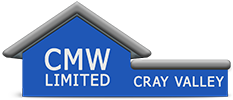
Introduction
Whether you're a seasoned DIY enthusiast or just starting with home projects, having suitable screws and fixings in your toolbox is essential. These small but mighty components are the backbone of any construction or repair job, holding everything together with precision and strength. In this comprehensive guide, we'll explore the world of screws and fixings, from the different types available to their various applications. By the end, you'll have the knowledge to stock up your toolbox with the ultimate selection of essentials.
Types of Screws
Wood Screws: These are designed specifically for use in wood and feature coarse threads to grip the material securely. They come in various lengths and head types, including flat head, round head, and pan head, each suited to different applications.
Machine Screws: These have finer threads and are designed to be used in conjunction with a nut or tapped hole. They're commonly used in metalworking and are available in various sizes and head styles.
Sheet Metal Screws: As the name suggests, these are intended for use with thin metal sheets and have sharp threads to penetrate the material quickly. They often feature a flat or pan head and are available with or without a built-in washer.
Drywall Screws: These are specifically designed for fastening drywall to wood or metal studs. They have coarse threads and a sharp point to minimize damage to the drywall surface.
Concrete Screws: Also known as masonry screws, these are used for fastening items to concrete, brick, or block walls. They feature special threads and often require pre-drilling a pilot hole using a masonry bit.
Self-Tapping Screws: These have a cutting edge at the tip of the thread, allowing them to create their pilot hole as they are driven into the material. They're commonly used in metalworking and plastics.
Types of Fixings
Anchors: These are used to secure objects to walls or ceilings where there is no underlying stud or beam. They come in various forms, including toggle bolts, expansion anchors, and screw anchors, each suited to different materials and load capacities.
Wall Plugs: Also known as wall anchors or rawlplugs, these are inserted into pre-drilled holes in masonry or plaster walls to provide a firm base for screws. They come in plastic, nylon, or metal, with different sizes to accommodate various screw diameters.
Threaded Inserts: These are used to create a threaded hole in a material that doesn't have one, such as wood or plastic. They can then accept a machine screw, allowing for solid and durable fastenings.
Clips and Brackets: These secure pipes, cables, or other objects to walls or ceilings. They come in various designs, including pipe clips, cable clips, and angle brackets, each tailored to specific applications.
Choosing the Right Fasteners
Material Compatibility: Consider the materials you'll be fastening together and choose compatible fasteners. For example, use stainless steel screws for outdoor applications to prevent corrosion.
Load Requirements: Determine your project's load requirements and select fasteners with the appropriate load capacity. Overloading a fastener can lead to failure and potentially dangerous situations.
Environmental Factors: Consider environmental factors such as moisture, temperature fluctuations, and chemical exposure and choose fasteners suitable for the conditions they'll be subjected to.
Appearance: While functionality is paramount, consider the appearance of the fasteners, especially for visible applications. Opt for screws and fixings that complement the aesthetics of the project.
FAQs
What are the most common types of screws used in DIY projects?
The most common types of screws used in DIY projects include wood screws, machine screws, and sheet metal screws, each suited to different materials and applications.
How do I know which size screws to use for my project?
Choose screws that are long enough to penetrate the material being fastened and provide adequate grip. You can refer to screw size charts or consult with hardware store staff for guidance.
Can I use the same screws for wood and metal projects?
While some screws may work for both wood and metal projects, it's generally recommended to use screws specifically designed for the material you're working with to ensure optimal performance and durability.
What are wall plugs, and when should I use them?
Wall plugs, also known as anchors or rawlplugs, are used to provide a firm base for screws in masonry or plaster walls. They should be used when there is no underlying stud or beam to secure the screw into.
How can I prevent screws from stripping or breaking during installation?
To prevent screws from stripping or breaking, ensure you're using the correct size and type of screwdriver or drill bit. Apply steady pressure and avoid overtightening the screws, especially in softer materials. If necessary, pre-drill pilot holes to reduce the risk of damage.
Conclusion
Building and repairing things around the house can be immensely satisfying, but having the right tools and materials for the job is essential. Screws and fixings may seem like small details, but they play a crucial role in the strength and longevity of your projects. By stocking up on a variety of screws and fixings suited to different materials and applications, you'll be prepared for any task that comes your way. So, invest in the ultimate toolbox and watch your DIY dreams become a reality.
If you want to take a closer look at our range of screws and fixings, click here. If you want to contact or find out more about this blog posts author, Dave click here.
